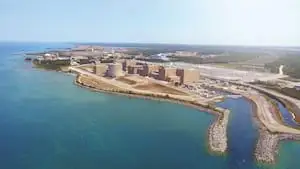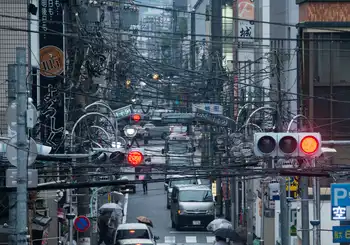Illinois picked for zero-carbon coal plant
Coal is cheap and plentiful throughout the U.S. It provides about half of the country's electricity. But it is also high in carbon. That means burning it releases more greenhouse gases than burning, say, natural gas. Researchers have been trying to find a way to capture the carbon and store it, so it won't be released into the atmosphere.
Many believe that Integrated Gasification Combined Cycle - IGCC - offers the best chance for carbon capture. In typical coal plants, coal is burned to create steam to turn a turbine. The carbon dioxide escapes through a massive flue, along with coal's other pollutants.
In an IGCC plant, the coal is super-heated and turned into a compressed gas before it is burned. This makes it easier to remove regulated pollutants that cause acid rain and smog. The process might also make it easier to capture and store carbon dioxide, a greenhouse gas believed to cause climate change.
Tampa Electric built a pioneering IGCC plant called Polk 1, about 40 miles southeast of Tampa in Polk County. The plant emits far less smog and acid rain pollutants than typical coal plants, but it releases about the same amount of carbon dioxide. Tampa Electric wanted to build another, larger IGCC plant called Polk 6, but had no plans to capture the carbon. The utility decided to cancel those plans due in part to their fear that the new carbon regulation might substantially increase the cost.
Related News

Siemens Energy to unlock a new era of offshore green hydrogen production
BERLIN - To reach the Paris Agreement goals, the world will need vast amounts of green hydrogen and wind will provide a large portion of the power needed for its production.
Siemens Gamesa and Siemens Energy announced today that they are joining forces combining their ongoing wind-to-hydrogen developments to address one of the major challenges of our decade - decarbonizing the economy to solve the climate crisis.
The companies are contributing with their developments to an innovative solution that fully integrates an electrolyzer into an offshore wind turbine as a single synchronized system to directly produce green hydrogen. The companies intend to…





